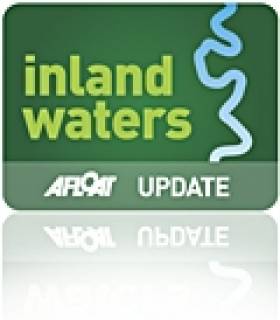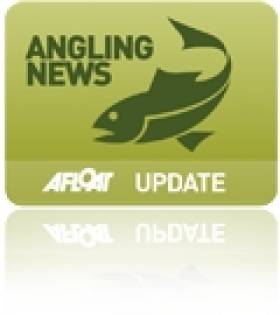Displaying items by tag: Freshwater
Connemara Fish Farms Need Freshwater Source
#FishFarm - Long-term solutions for freshwater treatment at Connemara fish farms are a priority as one local company seeks planning permission for a new pipeline, according to Galway Bay FM.
The moves come in the wake of recent controversy over illegal extraction of freshwater from lakes used to treat amoebic gill disease in salmon farms.
Údarás na Gaeltachta is now investigating longer-term freshwater availability for the growing aquaculture industry in south Connemara. Galway Bay FM has more HERE.
Fish Kill in Tallaght Investigated
#InlandWaterways - Reports indicate that as many as 500 freshwater fish of various species have been found dead in the River Dodder in Tallaght, south Dublin.
The fish kill was discovered on Friday evening upstream of the Old Bawn bridge, and according to the Irish Independent, Inland Fisheries Ireland says samples have been taken from the scene - and that a possible source has been identified.
However, the fisheries body refused to comment on speculation that the fish kill was a result of discharge from industrial waste or illegal dumping.
The fish kill covers a 600-metre stretch of the river in the south Dublin suburb.
Speaking to The Irish Times, Redmond O’Hanlon of the Dodder Anglers Group said it is the worst fish kill he has witnessed "in 30 years".
New Regulations For Salmon Anglers As Season Begins
#Angling - The Irish Times' angling correspondent Derek Evans welcomes the start of the salmon angling season tomorrow with a look at regulation changes for 2013.
Among them he notes that the number of open fisheries has risen to 55, while 59 rivers - five fewer than last year - will be closed, which marks some progress in Inland Fisheries Ireland's (IFI) efforts to ensure sustainability of Ireland's freshwater fish stocks.
Meanwhile, the catch and release programme has been modified to encompass the River Liffey from Islandbridge to Leixlip Dam for the first time, although at 32 the scheme includes two fewer rivers than last year.
"Catch and release will maintain, among other things, club membership interest and ensure a good footfall on the riverbank," writes Evans.
"Provided catch and release protocols are practised correctly, research has shown that the survival rate can be close to 100 per cent."
The Irish Times has more on the story HERE.































































